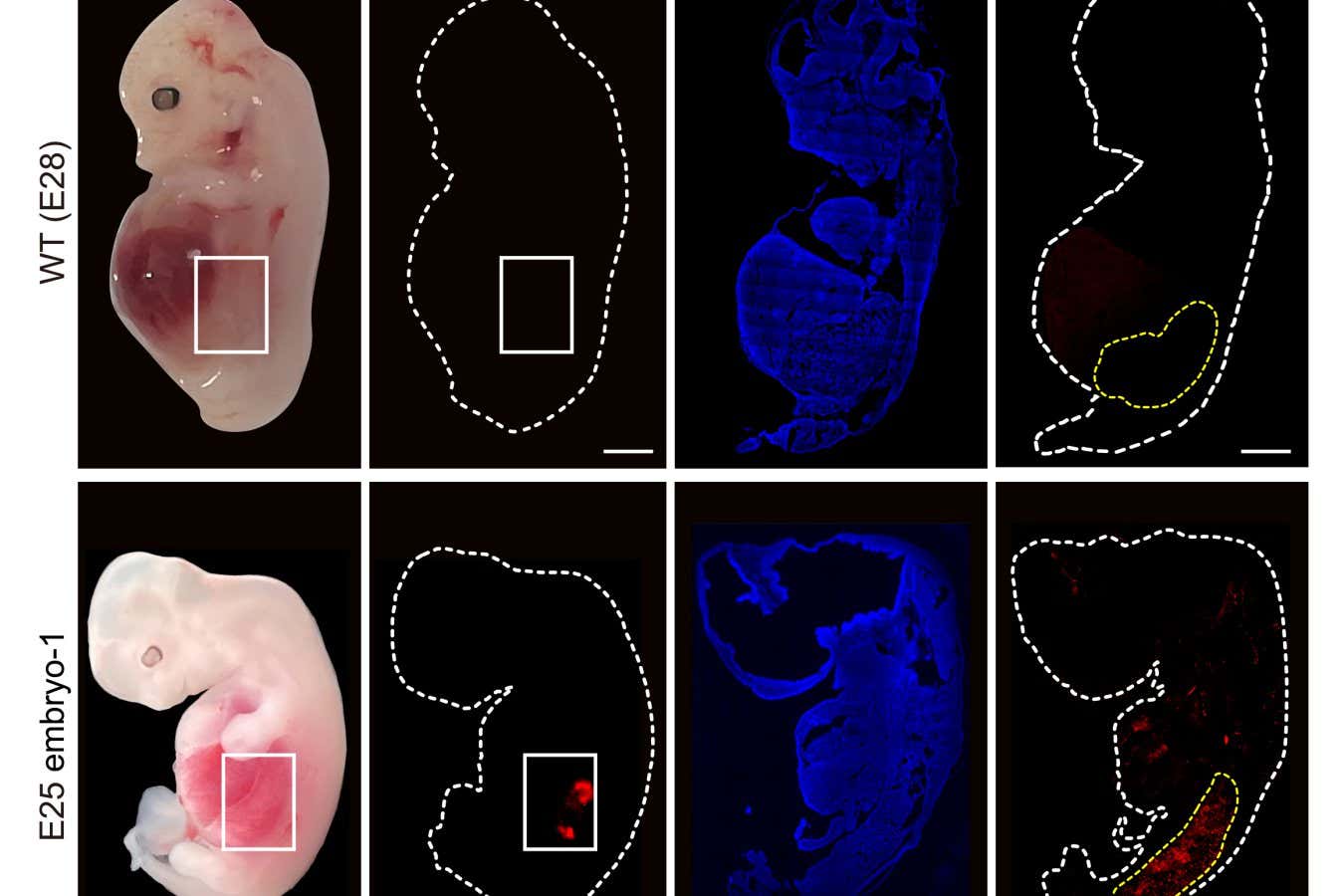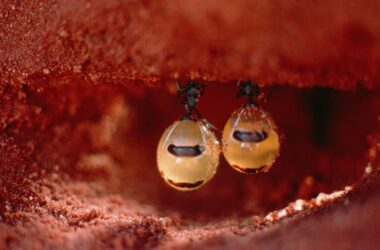A groundbreaking study has seen the successful growth of kidneys that are more than 50 percent human in pigs. Scientists created embryos using a combination of human and pig cells, which were then implanted in female pigs for a period of up to four weeks. This research, conducted by Miguel Esteban and his colleagues at Guangzhou Institutes of Biomedicine and Health in China, brings us closer to the possibility of growing human organs in animals to address the shortage of organ donors.
The shortage of kidney donors is a pressing issue, with over 100,000 people in the US alone currently waiting for a kidney transplant, and 13 individuals dying each day. To overcome this challenge, scientists are exploring the idea of growing human kidneys in other species, such as pigs, which have similar organ sizes and physiology to humans.
In this study, Esteban and his team created pig embryos that were incapable of forming kidneys by disabling two specific genes responsible for kidney development. They then introduced human stem cells into the pig embryos, with the hope that these cells would transform into kidney cells and develop into functional organs. To aid the integration of human cells in the pig embryos, the human cells were genetically engineered to increase the expression of two pro-survival genes.
The researchers implanted more than 1800 of these hybrid human-pig embryos into 13 female pigs. Due to ethical considerations, including concerns about the possibility of producing pigs with human-like brains if the human cells spread beyond the kidneys, the embryos were allowed to grow for only 25 to 28 days before being removed and analyzed.
Out of the implanted embryos, only five were successful in developing early kidney structures composed of 50 to 65 percent human cells and the remaining pig cells. The researchers tracked the movement of human cells in the pig embryos by tagging them with a red fluorescent marker and found that very few human cells ended up in other organs or the central nervous system, providing reassurance.
The research team has now received approval from their institute’s ethics committee to extend the development of these human-pig embryos to up to 35 days. This will allow them to observe the continued maturation of the humanized kidneys and ensure that minimal human cells end up in other organs. Esteban states that they will proceed step by step before reaching full gestation term, and they are also exploring the possibility of growing other human organs, such as the heart and liver, in pigs.
In addition to this approach, other groups are working on using pig-only organs for transplantation into humans. For example, surgeons at NYU Langone Health successfully transplanted a pig kidney into a brain-dead man by knocking out a specific gene in the pig organs to avoid triggering an immune reaction in human recipients.
Jun Wu, from the University of Texas Southwestern Medical Center, who previously reported the creation of the first human-pig embryos, believes that combining the two approaches – growing mostly human kidneys in pigs and knocking out genes that may trigger immune reactions – may yield the most effective results.
This groundbreaking research offers hope for addressing the shortage of organ donors and providing life-saving kidneys to those in need. The ability to grow human organs in pigs could revolutionize organ transplantation and alleviate the suffering of patients awaiting transplants.








